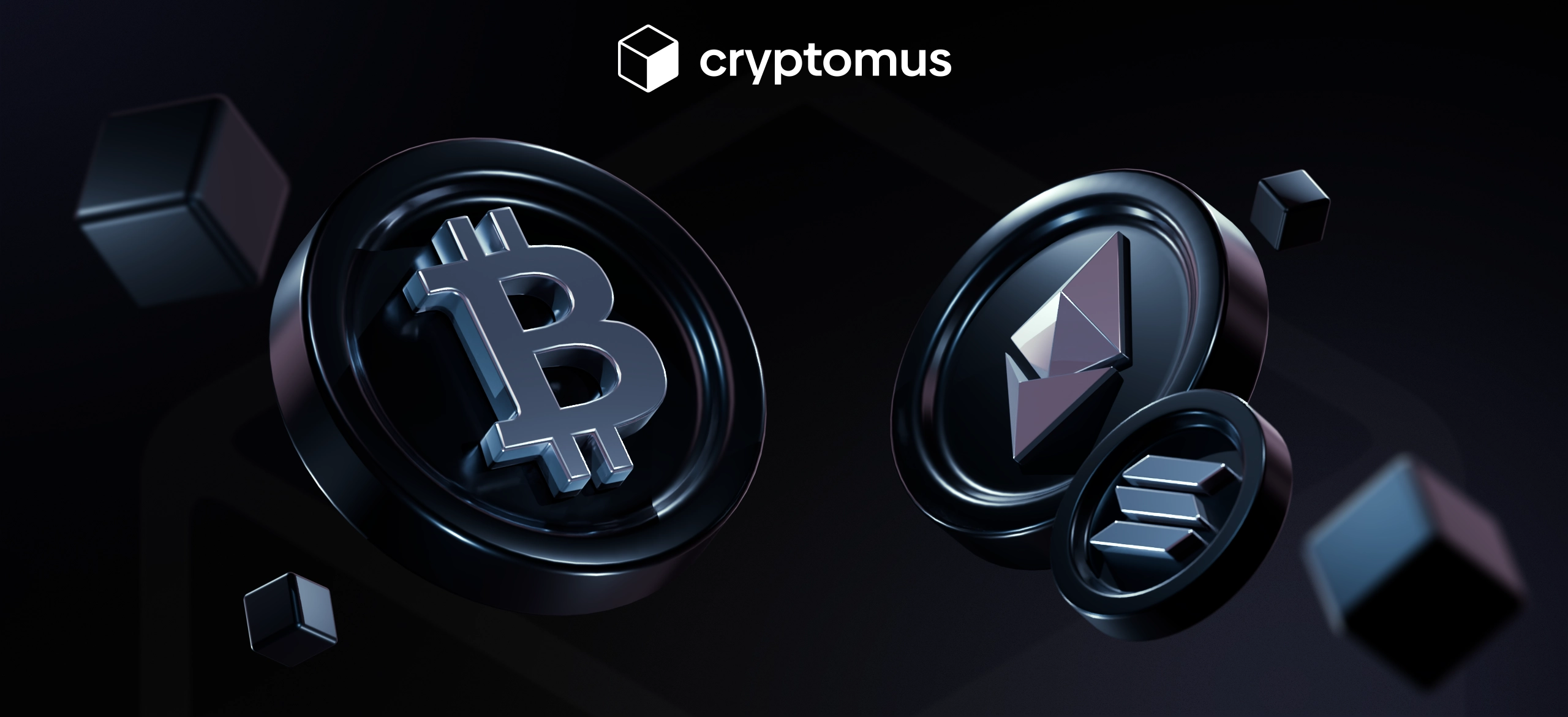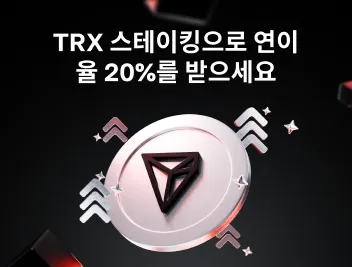
비트코인 vs 알트코인
목차
비트코인이 암호화폐 시장에서 여전히 지배적인 존재이지만, 알트코인들도 자신만의 공간을 확보했습니다. 이들은 비트코인과 어떻게 비교될까요?
이 가이드는 두 자산 유형 간의 차이점과 그 상호작용을 다룰 것입니다. 또한, 여러분의 포트폴리오에 가장 잘 맞는 자산을 찾는 데 도움이 될 것입니다.
알트코인(Altcoin)이란?
알트코인은 비트코인을 제외한 모든 암호화폐를 의미합니다. 이더리움, 솔라나, 시바이누와 같은 예시는 알트코인이 얼마나 다양한 선택지를 제공하는지 보여줍니다. 일부 알트코인은 간단한 결제 수단으로 사용되며, 다른 알트코인들은 게임 및 금융 분야와 같은 탈중앙화된 네트워크를 지원합니다. 일반적으로 알트코인은 몇 가지 카테고리로 나눌 수 있습니다:
-
대형 시가총액: 이더리움, BNB, XRP와 같은 잘 확립된 알트코인으로, 시장에서 강한 존재감을 나타내고 있으며 널리 채택되고 있습니다.
-
중형 시가총액: 아직 대형 프로젝트들에 비해 성장 가능성이 있지만, 주목받고 있는 코인들입니다. 예시로는 카르다노와 폴카닷이 있습니다.
-
소형 시가총액: 알고랜드와 코스모스와 같은 틈새 자산으로, 가격 변동성이 큰 특징을 가집니다.
이제 비트코인과 알트코인 간의 관계를 살펴보고, 그 중요성이 왜 큰지 알아보겠습니다.
비트코인과 알트코인의 관계
알트코인은 스마트 계약과 탈중앙화 금융(DeFi)과 같은 특수한 사용 사례를 제공하여 비트코인과 차별화됩니다. 그들의 범위에도 불구하고, 알트코인들은 대체로 비트코인의 가격 변동을 따릅니다. 비트코인은 시장의 감정을 지배하며, 가격 움직임과 투자자의 결정을 형성합니다.
그렇다면, 이는 어떻게 작동할까요? 비트코인이 상승하면 알트코인들도 종종 비슷한 움직임을 보입니다. 거래자들이 추가적인 이익을 추구하기 때문입니다. 비트코인이 하락할 때 대부분의 알트코인들은 떨어지지만, 일부 알트코인은 대체 투자 기회를 찾으려는 투자자들로 인해 상승할 수 있습니다.
또 다른 비트코인 관련 요인으로는 약 4년마다 발생하는 반감기가 있습니다. 비트코인 반감기는 시장의 관심이 높아지고 투자자들의 신뢰가 증가하면서 알트코인의 성장을 촉진하는 경향이 있습니다. 일반적으로 이렇게 전개됩니다:
-
비트코인의 가격이 상승하기 시작합니다.
-
투자자들은 비트코인에 집중하고, 작은 자산들은 나중에 고려합니다.
-
비트코인이 안정되면, 거래자들이 알트코인으로 이동하여 그들을 밀어줍니다.
이 패턴은 여러 번 발생했으며, 특별한 변화가 없다면 반복될 것으로 예상됩니다. 하지만 모든 알트코인이 동일한 혜택을 보는 것은 아닙니다. 대형 시가총액의 알트코인들이 더 많은 주목을 받는 경향이 있으며, 중형 시가총액의 알트코인이 그 다음을 따릅니다. 소형 시가총액의 알트코인들도 큰 상승을 경험할 수 있지만, 그만큼 더 큰 위험을 동반합니다. 또한 타이밍이 매우 중요한 요소로 작용합니다. 예를 들어, 비트코인이 안정되기 전에 또는 시장의 열기가 식은 후에 알트코인을 구매하면 잠재적인 수익에 큰 차이를 만들 수 있습니다.

비트코인은 원래의 암호화폐로 가장 큰 시가총액을 보유하고 있기 때문에 암호화폐 산업에서 일반적으로 지배적인 역할을 합니다. 비트코인의 다른 암호화폐들과의 관계는 비트코인의 지배력을 통해 반영됩니다. 이 지배력은 비트코인과 시장 내 다른 자산들을 비교하는 차트를 통해 추적할 수 있습니다. 비트코인의 지배력은 알트코인에 영향을 미쳐 시장 감정과 유동성을 형성합니다. 비트코인의 지배력이 상승하면 알트코인은 일반적으로 압박을 받게 되며, 반대로 비트코인의 지배력이 떨어지면 알트코인들이 더 많은 관심을 받게 됩니다. 그러나 비트코인이 급락하면 알트코인 시장에서 패닉 셀링이 발생할 수 있어 급격한 하락을 초래할 수 있습니다.
어떤 것이 더 좋은 투자일까요?
비트코인, 알트코인, 아니면 둘 다에 투자하려고 고민 중이라면, 간단한 대답은 없습니다. 이는 여러분의 투자 전략에 따라 달라집니다. 비트코인이 더 나은 투자 기회가 될 수 있는 경우는 다음과 같습니다:
- 안정적이고 장기적인 투자처를 원한다면.
- 복잡한 알트코인에 대한 연구를 원하지 않는다면.
- 더 규제된, 널리 받아들여진 암호화폐를 선호한다면.
- 비트코인의 장기적인 성장 가능성을 믿고, 빠른 수익보다는 안정성을 추구한다면.
- 암호화폐를 디지털 금처럼 보고 인플레이션을 대비하려는 경우.
반대로, 알트코인이 더 적합할 수 있는 경우는 다음과 같습니다:
- 더 큰 수익을 위해 추가적인 위험을 감수할 준비가 되어 있다면. 알트코인은 적절한 조건에서 10배, 50배 이상의 상승을 경험할 수 있습니다.
- 단기 거래 전략을 잘 다룰 수 있다면.
- 개인정보 보호 코인이나 게임용 토큰처럼 특정 목적을 가진 토큰에 관심이 있다면.
- 새로운 프로젝트에 초기 투자하고, 시간이 지나면서 성장할 것이라고 믿고 있다면.
- 특정 시장 상황에서 일부 알트코인이 비트코인보다 더 뛰어날 것이라고 생각한다면.
그럼에도 불구하고, 균형을 이루는 것이 다양한 암호화폐 포트폴리오에서 중요한 요소입니다. 비트코인의 안정성과 신생 블록체인 프로젝트들의 성장 가능성을 결합하는 것은 위험을 줄이고 시장 변동에서 이익을 얻을 수 있는 기회를 높여줍니다.
이제 비트코인과 알트코인의 관계를 이해했으므로, 안정적인 성장을 추구하든 빠른 이익을 목표로 하든 보다 명확한 투자 결정을 내릴 수 있을 것입니다.
이 가이드가 유용했기를 바랍니다. 여러분의 피드백과 질문을 아래에 남겨 주세요!
암호화폐 여정을 간단하게
암호화폐를 보관, 송금, 수락, 스테이킹 또는 거래하고 싶나요? Cryptomus를 사용하면 모두 가능합니다. 간편한 도구로 가입하고 암호화폐 자금을 관리하세요.
시작하다









